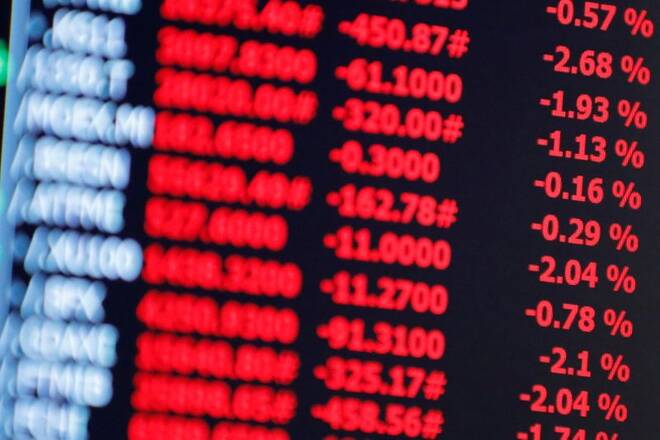Advertisement
Advertisement
Traders pile into defensive options plays as COVID-19 fears return
By:
By Saqib Iqbal Ahmed NEW YORK (Reuters) - Soaring volatility on Wall Street on concerns over a new coronavirus variant identified in South Africa sent investors scrambling into defensive options plays on Friday and boosted the Wall Street's most widely followed fear gauge to a more than two-month high.
By Saqib Iqbal Ahmed
NEW YORK (Reuters) – Soaring volatility on Wall Street on concerns over a new coronavirus variant identified in South Africa sent investors scrambling into defensive options plays on Friday and boosted the Wall Street’s most widely followed fear gauge to a more than two-month high.
The Cboe Volatility Index rose 8.37 points to 26.95, its highest since Sept. 20, as the S&P 500 index fell 1.9% with travel, bank and commodity-linked stocks bearing the brunt of the selloff triggered by the discovery of a new and possibly vaccine-resistant coronavirus variant.
It was the biggest one-day jump the VIX had logged since Jan. 27.
Options traders loaded up on bets that offset further market declines, with puts on the S&P 500 Index and its tracking Exchange Traded Fund (ETF) logging heavy volumes.
Puts convey the right to sell shares at a fixed price in the future and are typically used to hedge against a drop in stock prices. Calls provide the right to buy shares at the given price in the future and are usually used to put on bullish bets.
Puts on the S&P 500 index outnumbered calls 2-to-1, the widest margin in about six weeks, according to data from options analytics firm Trade Alert. Trading in SPY put options was similarly elevated.
“Risk off, hedges on seems to be the sentiment,” Seth Golden, chief market strategist at investment research firm Finom Group, said.
The surge in volatility follows weeks of comparatively placid trading that saw the S&P 500 march to record highs, with stocks seemingly shrugging off concerns over soaring inflation potentially pushing the Federal Reserve to normalize monetary policy at a faster-than-expected pace.
Steve Sosnick, chief strategist at Interactive Brokers, believes the severity of Friday’s sell-off may have been exacerbated by investors unwinding “one-way bets” expressing the view that there was little alternative to stocks.
“Those types of setups have a nasty way of reversing quickly,” he said.
Andrew Thrasher, portfolio manager for The Financial Enhancement Group, had been concerned that recent gains in a handful of technology stocks with disproportionately large weightings in the S&P 500, including Apple Inc, Amazon.com, Microsoft Corp, were masking weakness in the broader market.
“This set the kindling for sellers to push markets lower and the latest COVID news appears to have stoked that bearish flame,” he said.
The VIX index is still well below its all-time highs of 82.69, hit during the market selloff in March 2020.
A VIX at around 45-50 would “be close to panic,” said Ophir Gottlieb, chief executive of Los Angeles-based Capital Market Laboratories.
(Reporting by Saqib Iqbal Ahmed; Editing by Ira Iosebashvili and Marguerita Choy)
About the Author
Reuterscontributor
Reuters, the news and media division of Thomson Reuters, is the world’s largest international multimedia news provider reaching more than one billion people every day. Reuters provides trusted business, financial, national, and international news to professionals via Thomson Reuters desktops, the world's media organizations, and directly to consumers at Reuters.com and via Reuters TV. Learn more about Thomson Reuters products:
Did you find this article useful?
Latest news and analysis
Advertisement
